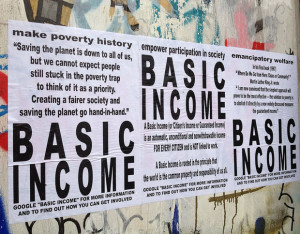Hold the phone! Why the EU roaming regulation might be bad for consumers
MEPs and Eurocrats are engaging in some circular back-patting this week, after finally achieving their long-held objective of outlawing mobile roaming charges between EU Member States. From June 2017,
“roaming providers shall not levy any surcharge in addition to the domestic retail price on roaming customers in any Member State for any regulated roaming calls made or received, for any regulated roaming SMS messages sent and for any regulated data roaming services used, including MMS messages, nor any general charge to enable the terminal equipment or service to be used abroad”.
The regulation provides that charges can continue where the provider would otherwise make a loss as a consequence of this requirement, however that provider may only charge so much as to offset that loss. Providers can also subject roaming customers to “fair usage” policies, in order to prevent permanent roaming.
Most holidaymakers will have suffered the unpleasantness of “bill shock” at some point or other, so this, on the face of it, appears to be good news for consumers. However, the EU’s relentless pursuit of a single market in telecommunications may ultimately prove to be bad for consumers in the longer term.
Immediate effects
The immediate effect of this regulation will be good for consumers. This regulation has been a long-time coming, and the costs of implementing it in the short term have probably already been anticipated by operators. The lucrative receipts from roaming charges received by operators will be no-more, with consumers benefitting while network operators suffer. However, while I’ve never run a multi-national telecommunications company, I’m reasonably sure that if forced to choose between protecting profit margins or lowering prices, I’d probably opt for the profits. This is where the regulation could well prove to be bad news for consumers. It is likely that, while the short term implementation of these rules has been priced in, in the longer term operators will seek to return to normal profit levels – which in a saturated marketplace almost inevitably means higher prices.
Most mobile users don’t roam often. And while the more limited use of our devices, and higher charges, are something of an irritant when we go on holidays – most of us, these days, opt to go without roaming services and simply hop from wireless hotspot-to-hotspot. A very small minority of users, however, will travel often around the EU, and for a small number of those users (businessmen, journalists, or Eurocrats, for example) constant connectivity is a necessity and one which they (or their employers) have hitherto paid through the nose for.
From June 2017 we’ll now all receive a service for free which most of us have learned to cope without. For the British holidaymaker in France it means keeping up with Wimbledon on Twitter. Great news! But more of a nice added bonus than a necessity. However, for the high-financier jetting around European financial centres doing deals this is a huge boon – and doubtless the primary beneficiary of this move.
So if big business consumers are celebrating, and mobile operators are – long term – likely unaffected, how should the consumer feel about this regulation? Given that from June 2017 those of us who learn to limit our mobile usage while on holidays will effectively be cross-subsidising those who previously had no choice but to pay for it; we probably shouldn’t be celebrating too much.
Long term effects
This regulation represents another step towards the EU’s stated objective of a single EU market in telecommunications. Most rational, normal, people see the attainment of a single market as a good thing when it facilitates the attainment of other objectives – such as improved competition, lower prices, and higher standards. For the EU, however, the attainment of a single market is an a priori good. This is quite evident in the field of EU competition law. It has been apparent since the decision in Consten and Grundig that the objective of attaining a single market in the EU overrides competition law objectives. This contrasts starkly with the US courts’ consumer welfare approach, heavily influenced by the Chicago School – where vertical restraints (such as geographic restraints) are only unlawful where they harm consumer welfare.
However, large single markets are not always good for consumers. This is particularly the case in sectors where barriers to entry are high. In the mobile telecommunications sector, barriers to market entry are extremely high. The nature of the product means that access is restricted by licensing schemes. The capital outlays necessary (for infrastructure) are massive, while in 2013 operators paid £2.4 billion pounds for five licenses to operate 4G services in the UK. Though these figures are eyewatering, the barriers to entering individual telecommunications markets in the EU are as nothing when contemplating what these costs might be in a single EU mobile telecommunications market.
The fragmentation of the EU’s telecommunications market is arguably good for consumers. While four big players players exist – Vodafone (UK), Telefonica (Spain), Orange (France), and Telekom (Germany), with at least one of each of these four operating in most EU countries (save Scandinavia) – many markets have smaller operators who compete effectively with these large players.
Compare, for example, France and Germany. France has a marketplace with only one of the dominant four players (Orange) as well as two domestic-origin competitors (Bouygues and Iliad) and one Dutch competitor (Altice). In contrast, all three network operators in Germany (Telekom, O2, and Vodafone) are all drawn from the big players. A SIM-only plan from Bouygues in France with unlimited calls and texts, and 3GB data is priced at €19.99 per-month. With Telekom in Germany, a plan with unlimited calls and texts and 2GB data has a normal price of €39.95. These price patterns are replicated in other jurisdictions with similar levels of dominance by big players.
There is a marked difference in price between the marketplace in which there is competition from smaller operators than in the marketplace dominated by big players. Unfortunately for the consumer, the latter is the more likely outcome if the EU’s objective of a single EU-wide market in mobile telecommunications. The nature of the technology means that there is likely only spectrum capacity for around five network operators – with only large pan-European operators the only players with the capital and infrastructure necessary to operate. We need only look to the US for an illustration of a large single market in mobile telecommunications – where prices are considerably higher than in Europe, coverage is patchy, and technology, until fairly recently, lagged behind.
So in July 2017 British holidaymakers will follow Wimbledon on Twitter as they lie on the beach in Benidorm or sip on rosé wine in Brittany, and may even drink a toast to the European Union for making that day a little bit more enjoyable. However, in years to come, we may look back to when we had to beg, borrow, and steal wifi while abroad as the good old days.


